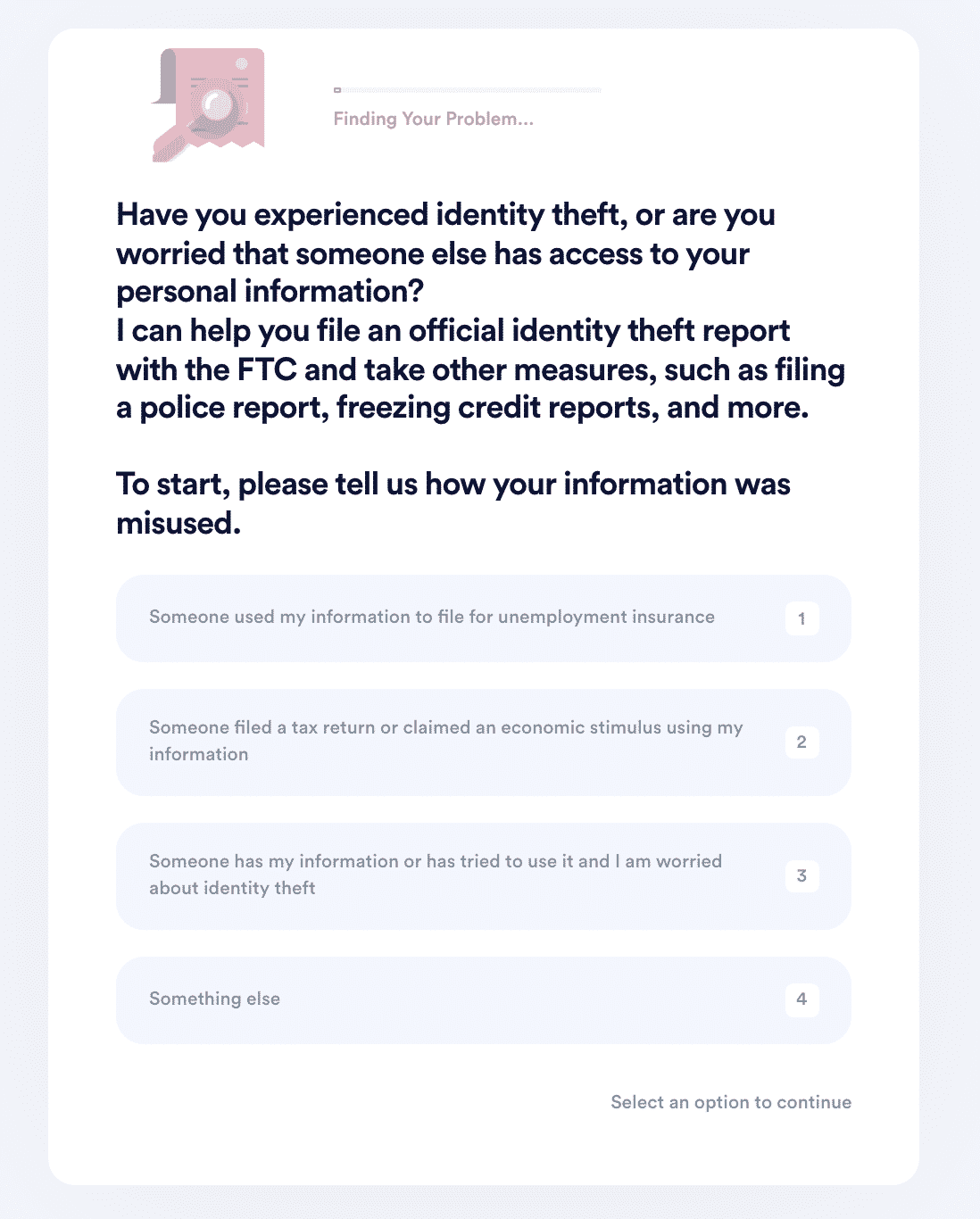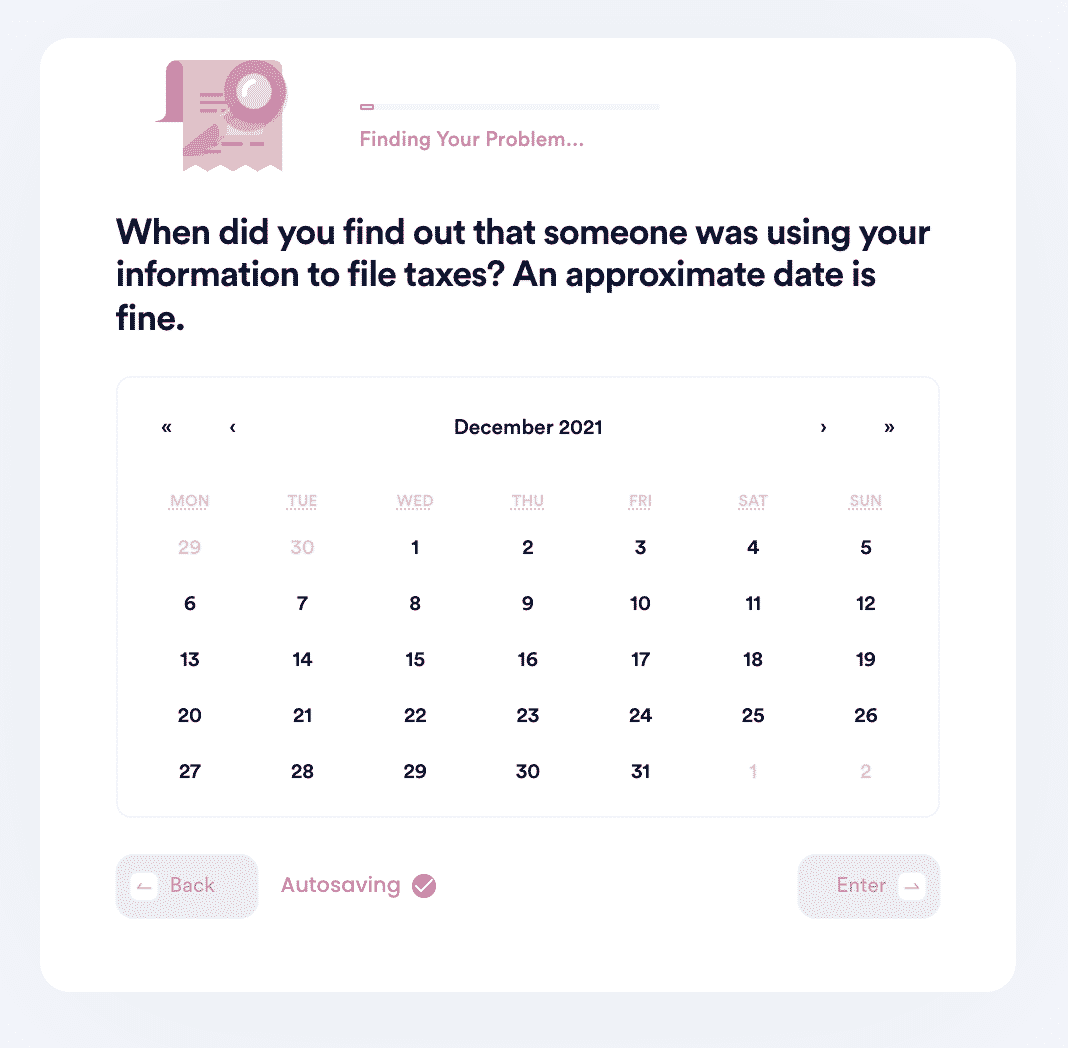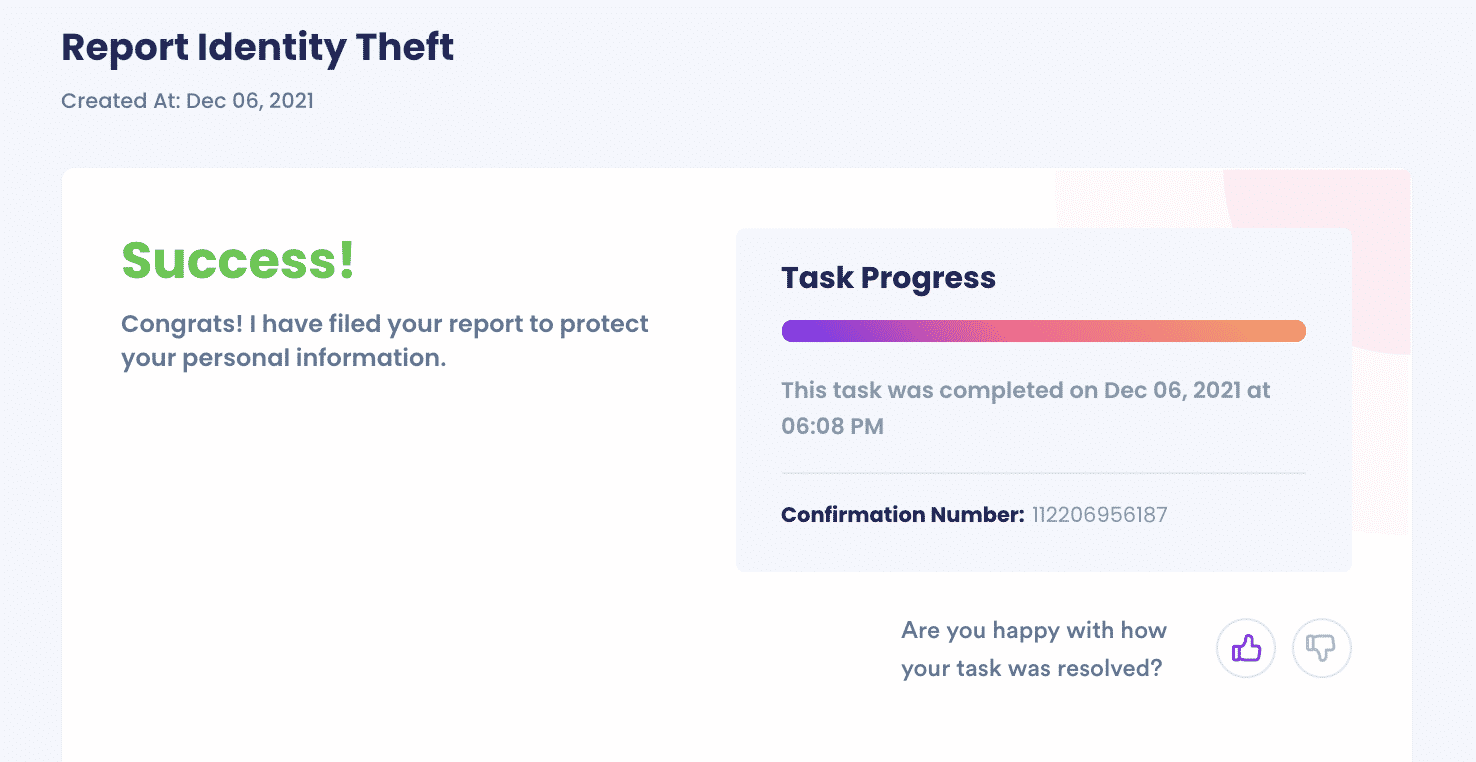Jumbo Privacy Review: Is It Legit? Does It Store My Password?
In a world where more and more people are taking to the internet to manage their purchases, bills, and other expenses, it's more important than ever to ensure that your privacy is protected. When someone steals your identity, you could lose access to your banking accounts and experience such side effects as a plummeting credit score, tax fraud, and even unauthorized transactions. Taking steps to protect your privacy by instantly reporting suspected identity theft can help prevent these kinds of issues from occurring.
Are you curious about the Jumbo Privacy service and interested in knowing about ? Researching the right privacy protection and identity theft solutions can help you better understand how to navigate the internet safely. DoNotPay has the information that you need regarding Jumbo Privacy reviews and how to handle identity theft when and if it happens to you.
What Is Identity Theft?
Identity theft happens when someone steals your identity with the intent of committing fraud. According to USA.Gov, the person or persons who steal your identity might use it to get medical services, open a credit card, or make unauthorized purchases.
It can be very time-consuming and stressful for anyone to deal with identity theft. It can leave you feeling overwhelmed, exhausted, and confused. However, you have options - and when you know the signs of identity theft and what to do if you suspect that it's happening to you, you will be poised to deal with identity theft effectively.
How Does Jumbo Privacy Deal With Identity Theft?
Jumbo is an application that works to protect your privacy online. Jumbo authenticates and connects your various online accounts, alerting you if suspicious activity is detected. This can be helpful when detecting identity theft by giving you an early heads-up so that you can act quickly to secure your accounts and take additional action if needed.
TrustPilot has a page for Jumbo Privacy reviews, with users rating the application as "excellent," with 4.8 out of 5. It seems as though many users feel as though is safe to use, making it a valid choice for those looking to protect their identity online and discourage identity theft.
Signs That You Might Be A Victim Of Identity Theft
There are a few warning signs of identity theft that everyone should be aware of.
These include
- A new account or loan listed on your credit report that you aren't familiar with.
- Bills for accounts that you don't know about.
- A random drop in your credit score.
- Calls from collections agencies regarding accounts you are unfamiliar with.
There are other signs that could indicate that your identity has been stolen, so if you suspect any fraudulent activity, you should take immediate action to secure your accounts.
What To Do If Your Identity Is Stolen
If you suspect that your identity has been stolen, you should act fast.
Here's how to report identity theft:
- Reach out to the Federal Trade Commission.
You can do this by phone or through their website. You will be prompted to give details of your situation and be given resources as to how to deal with identity theft.
| How to Contact the Federal Trade Commission | |
| Website | IdentityTheft.gov |
| Phone | 1-877-438-4338 |
- Secure your bank accounts
Contact your bank and describe what you think is happening - your bank will have resources to secure your account, including potentially giving you a new debit card and locking your account against any new charges unless they are verified by you.
- Change passwords
Change your passwords on any sensitive accounts, including social media and any financial apps.
- Freeze your credit files
Freeze your credit files with any sites such as Experian or Equifax - this will prevent identity thieves from applying for any new credit accounts in your name.
Use DoNotPay to Deal With Identity Theft
It's stressful to deal with identity theft. You might be left feeling as though you don't know where to turn. However, DoNotPay is here for you.
Here's how to deal with identity theft using DoNotPay:
- Search "identity theft" on DoNotPay and select the type of incident you would like to report.

- Tell us more about the incident that occurred, including the location, date, time, financial loss, and any suspect information you may have.

- We'll identify whether you should file an FTC report, contact the IRS, freeze your credit report, contact state agencies, or file a police report. Once we guide you through the best options, we'll automatically submit the reports on your behalf!

And that's all there is to it! DoNotPay will make sure your issue gets sent to the right place. We'll upload confirmation documents to your task for you to view, and if the contacts need more information, they will reach out to you personally via email or mail.
How Else Can DoNotPay Help You?
DoNotPay wants you to be safe and secure while browsing or handling business online.
Check the following links to see some of the tasks DoNotPay can handle on your behalf:
- How to handle IRS identity theft
- Experian identity theft
- How to handle credit card fraud
- How much can you send demand letters to for identity theft?
- Equifax identity theft: what to do
- Someone filed for unemployment in my name: what to do
- Social Security identity theft
- Someone stole my stimulus check
- Fastweb reviews
- LifeLock reviews
- FormSwift reviews
 By
By